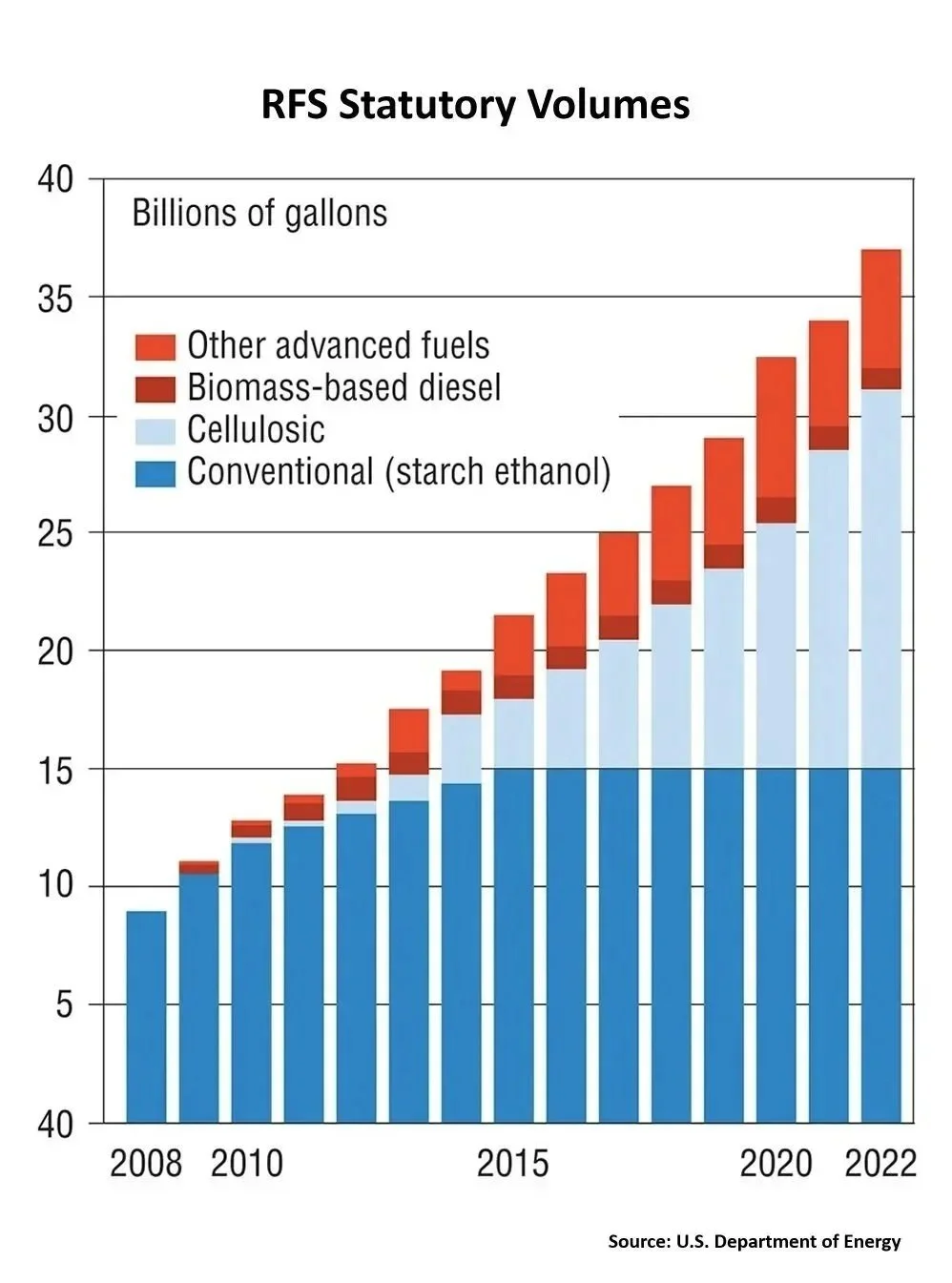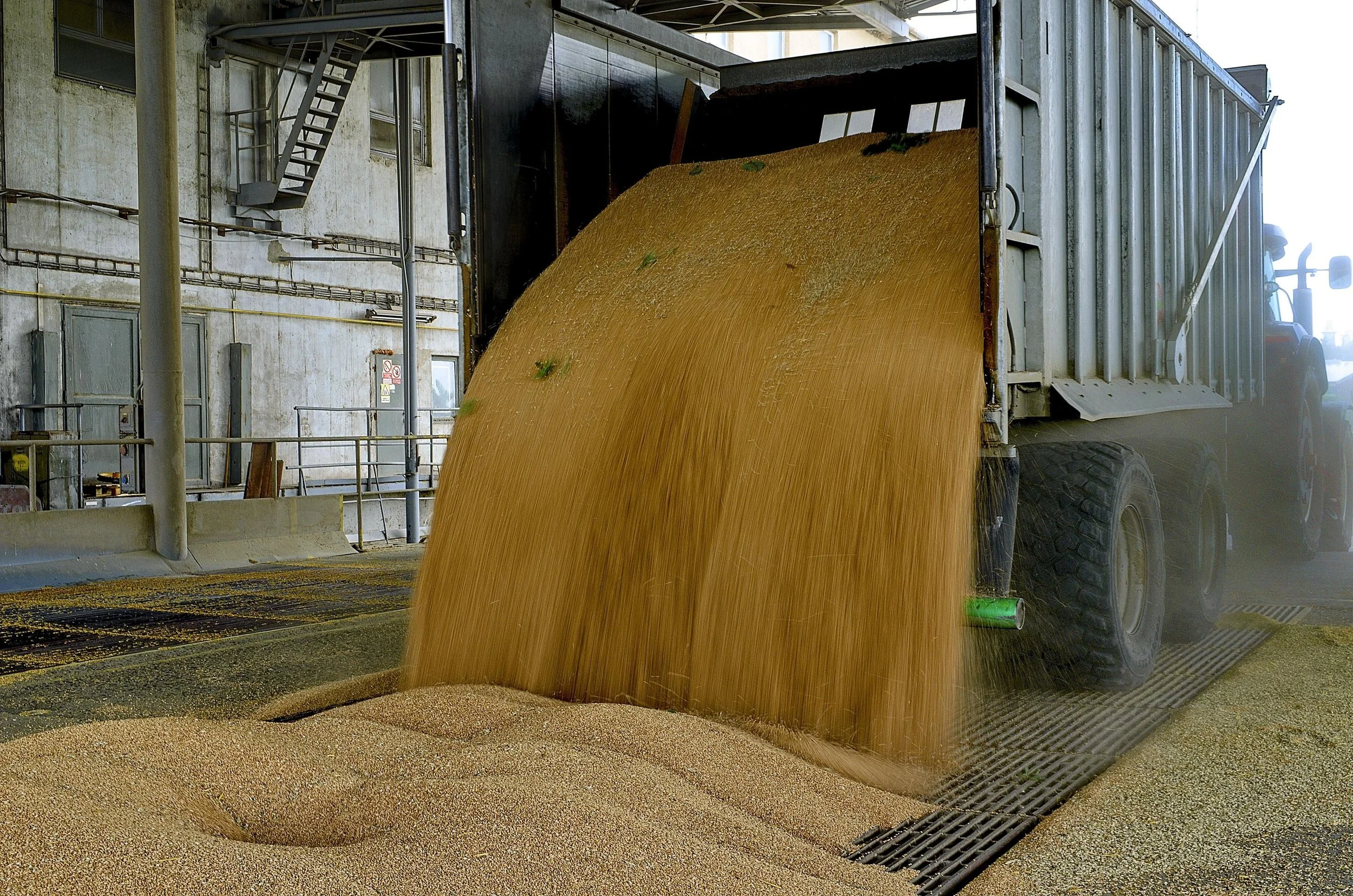Renewable Fuel Standard (RFS)
The Renewable Fuel Standard (RFS) is a bipartisan American energy policy signed into law in 2005 by President George W. Bush and expanded in 2007.
It ensures that rising volumes of homegrown biofuels are available to consumers as part of the fuel mix, generating new options at the gas pump and protecting American consumers from volatile global oil markets.
Under the RFS, billions of dollars of have been invested into conventional and advanced biofuels production – establishing the United States as the global leader in biofuels production capacity.
Biofuels slash U.S. reliance on foreign oil, decrease emissions, create manufacturing jobs, and stimulate economies in more than 25 U.S. states.

How It Works
Congress set the RFS blending targets when it enacted the law, but provided the U.S. Environmental Protection Agency (EPA) with the authority to implement the law.
EPA sets the RFS biofuels blending requirements for oil companies – in an annual rule called the “Renewable Volume Obligation” (RVO) — and ensures that RFS blending requirements are met by all obligated parties.
The driver behind RFS compliance is the RIN (or Renewable Identification Number). Each gallon of RFS-eligible biofuel produced comes with a unique RIN. To demonstrate compliance, oil companies retire (with EPA) the number of RINs equal to their per-gallon compliance obligation.
RINs also enable compliance flexibility. Oil companies choosing not to blend physical gallons of renewable fuel can instead secure RINs on an open market (usually from other oil companies). While there is a cost to acquiring RINs, federal agencies have repeatedly concluded that RIN purchasers recover their RIN costs, and RINs do not increase gas prices.
RFS = U.S. Manufacturing
According to a recent report, the distribution of U.S. bioeconomy employment touches every U.S. state, with more than $1 billion in total output impacts in more than 25 states.
Biofuels are the largest sector within the U.S. biomanufacturing sector. As such, Midwestern states with large biofuels production capacity often have the greatest economic returns. However, other states (NC, CA, TX) also have large biomanufacturing sectors and employment rates.
The U.S. industrial bioeconomy depends on labor, biomass, other materials, goods and services that cannot be economically sourced overseas.
The U.S. industrial bioeconomy relies almost exclusively on local suppliers, often within close proximity to manufacturing facilities, for core feedstocks and commodity inputs.
A considerable competitive and policy advantage of these industrial bioeconomy jobs is their tie to U.S. soil, both literally and figuratively - these jobs are here to stay.
Status Update:
On June 13th, the Trump Administration announced the “boldest proposal ever” to expand biofuel production volumes in 2026 and 2027 under the RFS.
If the promised gallons reach the marketplace, the draft rule would expand biomanufacturing across the heartland, strengthening American energy security, holding down fuel costs, and supporting American farmers.
Rural leaders and bioeconomy stakeholders nationwide have rallied behind the EPA’s proposal and urged the agency to swiftly finalize the draft rule - without changes or exemptions that would undercut demand for homegrown fuels.
On September 16, 2025, EPA announced a supplemental proposed rule that co-proposes to reallocate 50 percent or 100 percent of the renewable fuel gallons lost to Small Refinery Exemptions (SREs) granted in full or in part by EPA for active RFS compliance years. Fuels America continues to support 100 percent reallocation (i.e. 0 percent demand destruction for U.S. farmers and biofuels producers) of gallons lost to SREs.

“Resolved, That the House of Representatives—
(1) recognizes the 20th anniversary of the Renewable Fuel Standard (“RFS”) as a milestone in the commitment of the United States to strengthening energy security, supporting rural communities, growing the economy, and improving environmental performance;
(2) commends the contributions of the RFS in building a robust and innovative domestic renewable fuels industry;
(3) recognizes the positive impacts of the RFS on United States energy policy, the agricultural sector, and the environment over the past 20 years;
(4) affirms the continued importance of the RFS in advancing the Nation’s energy, economic, and environmental goals;
(5) believes that diversifying the United States fuel supply with an increasing percentage of domestic renewable fuel strengthens the Nation’s economy, increases security, and improves environmental performance; and
(6) supports continued implementation of the RFS as enacted in 2007 to achieve this goal.”
- Bicameral Resolution (H.Res 628, Aug. 8, 2025) recognizing the 20th Anniversary of the Renewable Fuel Standard (RFS) and its foundational role in strengthening U.S. energy security, supporting rural communities, and growing the American economy



